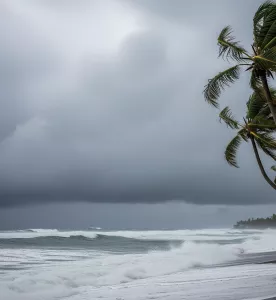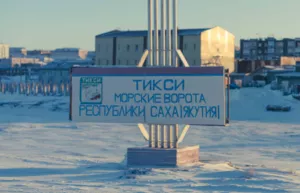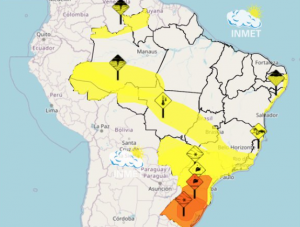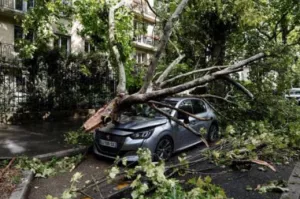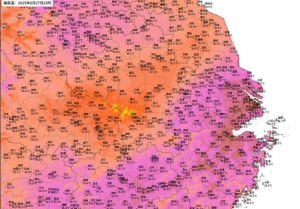St. Petersburg: -20,9°C, record from 1893 was broken, in a metropolitan area of the city temperature dropped to -30°C
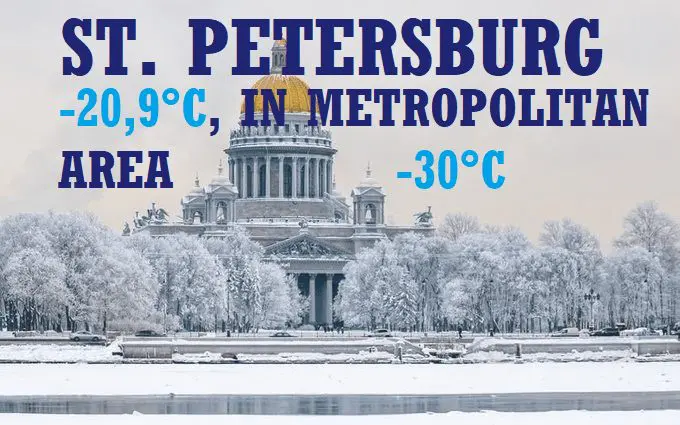
Extremely cold weather has not come only into Scandinavia, with the strongest early frosts since 1945 (-43,8°C in Sweden: https://mkweather.com/the-worst-predictions-came-true-sweden-427c-the-lowest-temperature-in-naimakka-in-december-in-all-time-history/) and the strongest early winter in Baltic region since 1959 (-27,6°C in Estonia: https://mkweather.com/the-strongest-early-frosts-in-the-baltic-region-in-62-years-since-1959-tartu-estonia-276c-zoseni-latvia-264c/), but very old temperature record was broken in Venice of the North – St. Petersburg, Russia.
In the middle of the city, with the heat island effect, the minimum temperature on 6. December 2021 dropped to -20,9°C, which is the coldest temperature in the city on 6. December since 1893.
In the wider metropolitan region, such as in Estonia and Finland, frosts around -30°C have occurred and are still forecasted.
The city is after a severe blizzard, too, with a current snow cover of 30 cm.
The next cold times are forecasted approximately until the half of the month, while before Christmas should be relatively warmer.
However, around Christmas and New Year 2021-2022, extremely cold weather should return /https://mkweather.com/winter-in-europe-will-return-around-christmas-and-new-year-2022-especially-in-the-central-and-eastern-sector-long-term-forecast-until-10-january-2022/; https://mkweather.com/white-christmas-2021-a-big-snow-forecast-for-europe-until-10-january-2022//.
Cold weather has a bad impact on the virological situation, heart attack rates, many kinds of cancer, or should cause hypothermia.
Blizzards should cause widespread problems on roads, highways, or railways and power outages, including metropolitan areas.
If you live in Europe, we highly recommend you to watch current weather news, forecasts, warnings, and advisories.

Of zijn ‘t de Russen weer?
— Patrick Guttenberg 🌋 (@gut_001) December 6, 2021
“Record Freeze: St. Petersburg Frost Cracks 1893 Temp.
Temperatures plummeted to -20.9 °С (-5.6 °F) overnight in Russia's northern capital, – 0.4 ° C lower than the previous record for the same day 128 years ago. (Fobos center)”
[Via RT] pic.twitter.com/OCqCeqQsxH
DEEP FREEZE:
— Bryan Harris (@spamanBJH) December 7, 2021
St. Petersburg’s “Deep Freeze” Breaks 1893 Record;
Sweden Breaks All-Time December Low (-46.8F);
Bethel, Alaska Suffered Its Coldest November in 82 Years;
Volcanic Uptick Correlates With Changes In The Sun.https://t.co/rFMpTZxOLZ
Deep freeze – St. Petersburg breaks daily temperature record set in 1893, Russia https://t.co/rmMChspuU3
— Tesla Supervisor (@0x300e) December 7, 2021
Weerpraatje Jan Visser https://t.co/Z25gY0rmxl Zo kan het dus ook nog! Sint Petersburg registreerde gisteren met -21,0º het eerste decemberdatum(koude)record sinds 1978. Foto: indrukwekkende optische verschijnselen in Nusse, Zweden (bron: Lizzy Mens). pic.twitter.com/FmvSnF6zFY
— JAN VISSER (@janvissersweer) December 7, 2021
Record cold in St. Petersburg, Russia – breaking a record low temperature set in 1893 = 128 years ago.
— Don Penim (@Don_Penim) December 6, 2021
(Data since 19th century) https://t.co/uo1RG4eWR8







